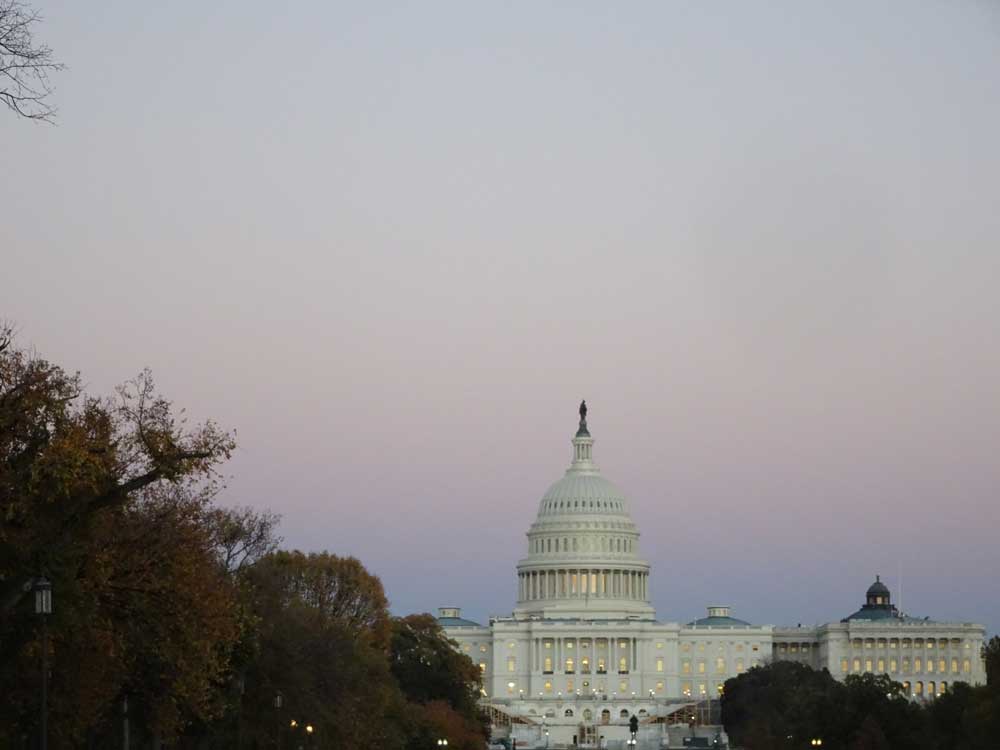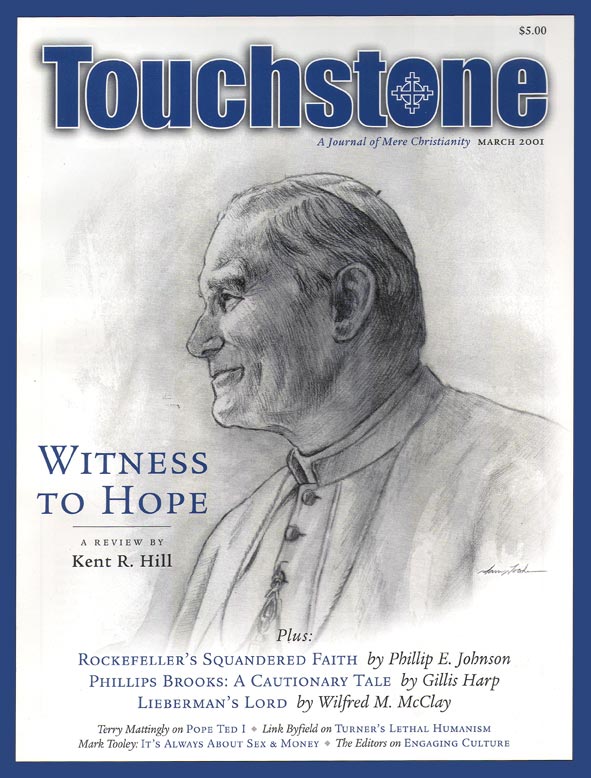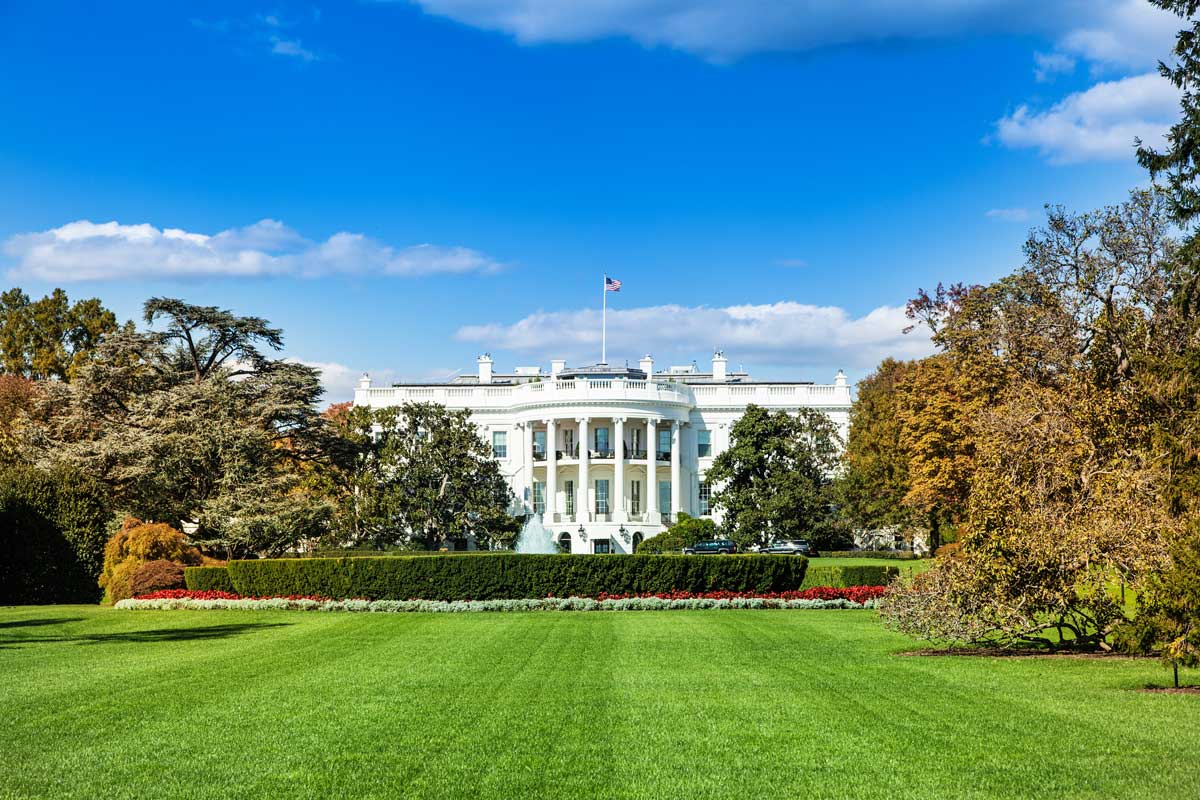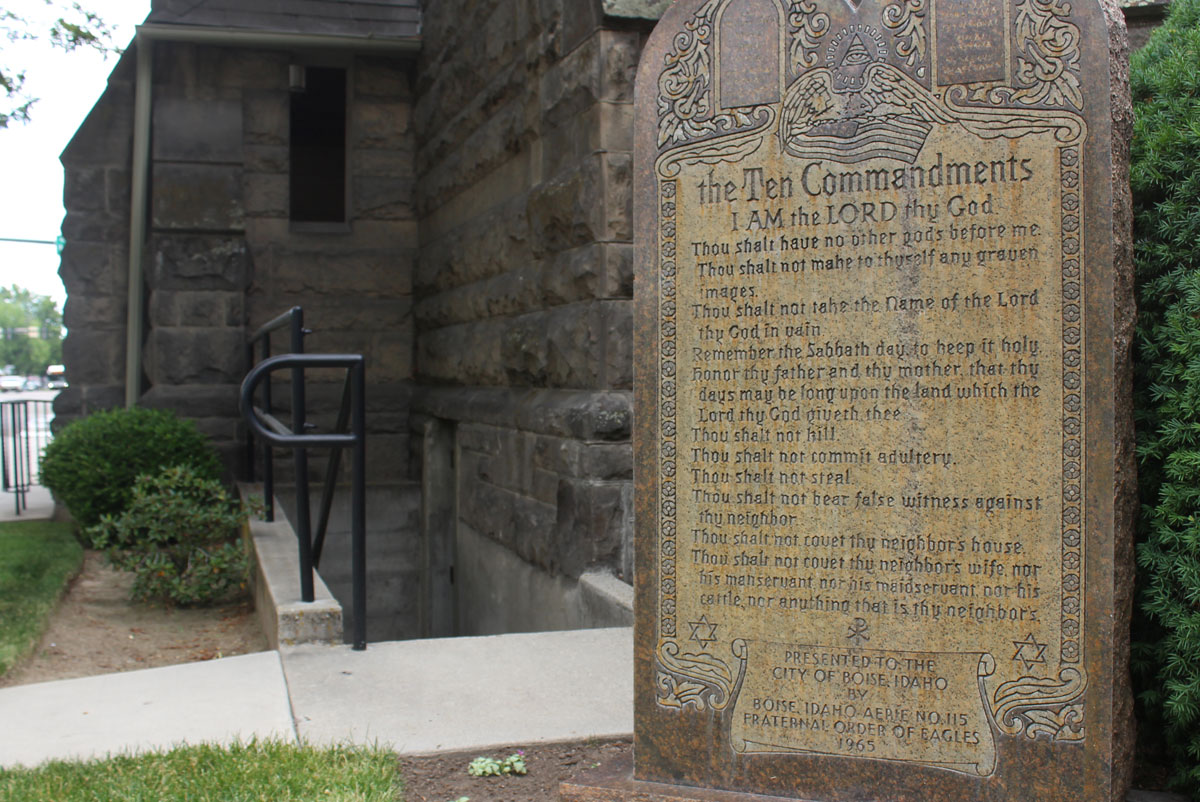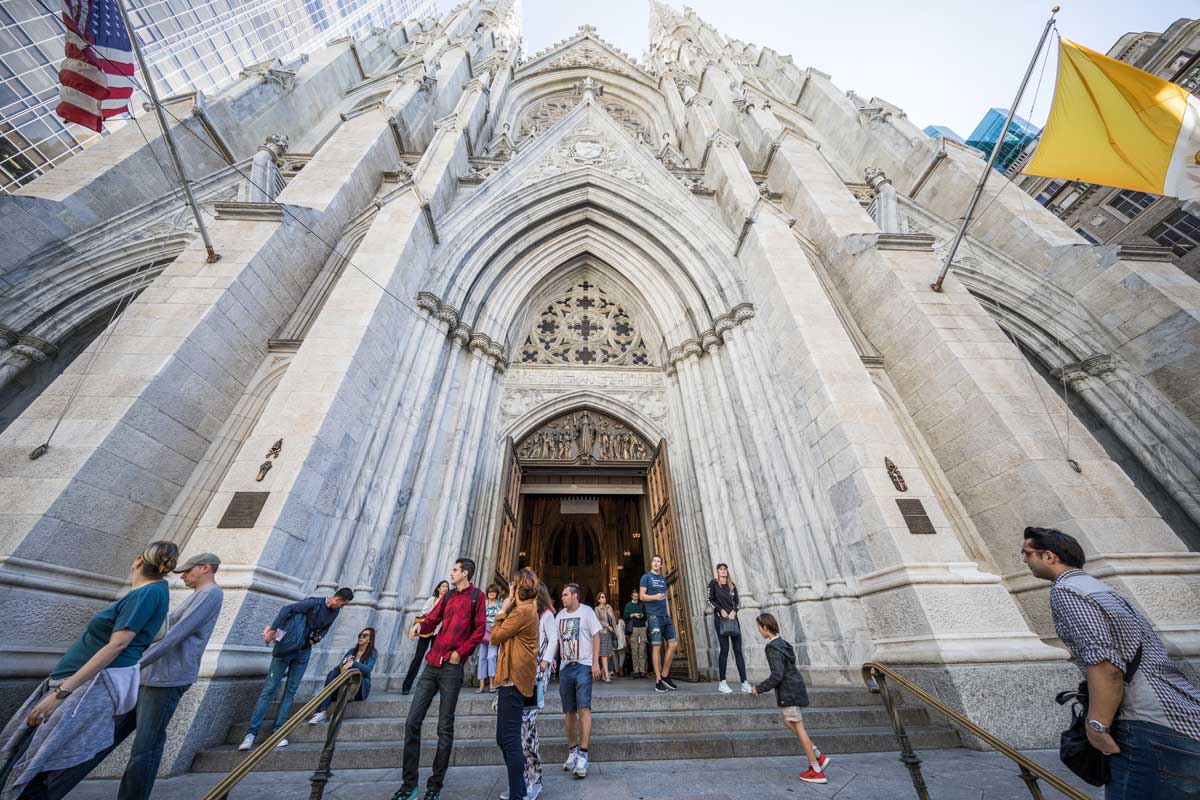The God of Princes
Wilfred M. McClay on the Political Use of Religion
As the strange and unsettling presidential election of 2000 recedes from view, it is important to remember that controversies over prescription drugs and the physiognomy of “chads” were not the only salient issues arising in the course of the campaign.
Indeed, we may by now have forgotten that there was a fleeting moment, early on, when it appeared the election might produce a fresh reconsideration of the proper role and limits of religion in public life. Making this development all the more exceptional was the fact that, for the first time since the days of William Jennings Bryan, the “religion question” was being raised by a Democratic candidate: Connecticut Senator Joseph Lieberman, an avowedly observant “modern orthodox” Jew.
Lieberman’s remarkably frank and enthusiastic public declarations of his religious sentiments in the days and weeks immediately after his selection as Al Gore’s running mate were stunning departures from the norm, and immediately generated quite a storm of controversy and commentary. His fervent and frequent expressions of gratitude to “our awesome God” were music to the ears of many Evangelical and Roman Catholic voters, who might otherwise have been disinclined to pay any attention to a Democrat. In addition, he gave a thoughtful, if somewhat vague and uneven, speech at Notre Dame during the campaign’s home stretch, in which he seemed to endorse the necessity of moral absolutes, extolling the “inextricable link” between “our rights” and “our belief in God and a higher law.”
Remarkably Fluid Stances
But at the same time, those with eyes to see soon became aware that Senator Lieberman is a very complicated man, capable of transforming himself at will into a remarkably fierce and unscrupulous political partisan—a man whose high moral stances prove to be remarkably fluid and negotiable, and whose principal goal is not moral uplift but political victory, at no matter what cost. One could be forgiven for thinking that his conspicuous religiosity had, in the end, only been another posture in the service of that same old Democratic Leadership Council staple: political triangulation.
One could see elements of this particular triangulation strategy beginning to take shape as early as the summer of 1999, at which time the veteran New Democratic strategist and longtime Gore advisor Elaine C. Kamarck confidently assured the Boston Globe that “the Democratic Party is going to take God back this time.” Anyone who has closely watched President Clinton’s astounding success in using bits and pieces of biblical language, blended with psychobabble and crocodile tears, to win over the hearts of many status-anxious Evangelical pastors and editors, knew that this was by no means an impossible task.
Indeed, there is a genuine hunger abroad in the land for public acknowledgment of the Deity, and there is no reason why Republicans should be the only ones trying to satisfy it. The challenge for Democrats, however, was that of finding a path between confining fundamentalism and New Age wackiness, and establishing a position that plausibly evoked the sturdiness of the Judeo-Christian tradition without being overly committed to it.
So when Ed Rendell, chairman of the Democratic National Committee, let out a very public exhalation just before the Democratic convention, to the effect that Joe Lieberman would have been an excellent vice-presidential candidate, if only—sigh!—the country were ready to accept a Jewish candidate for national office, it did not take a genius to see that the selection had probably already been made, and the ground was being prepared for it. Gore’s choice would be presented to the world not only as a dramatic distancing from Bill Clinton, but as a heroic blow against entrenched prejudice.
If this heroic blow turned out actually to be rather more like the kicking-in of an open door, well, no matter. The American people could join in on the fun, and congratulate themselves for being innocent of the anti-Jewish bigotry of which they were being implicitly suspected. And those who had substantive criticisms of Lieberman would likely feel inhibited, if not silenced, by fear of just such a charge.
Lieberman would, in short, be instantly immunized against many of the vulnerabilities facing other pro-religion candidates. No one could plausibly accuse him of insensitivity to religious and ethnic minorities, nor could anyone suspect him of plotting to impose a theocracy. On the contrary, there was ample reason for all Americans, and not merely Jews, to look with unusual favor upon such a candidacy.
Moreover, as an observant Jew he could carry the pro-religion banner more convincingly than Mr. Gore, who gibed ignorantly in a July speech to the NAACP that “the last time that Moses listened to a ‘bush,’ his people wandered in a desert for forty years.” Lieberman would not say anything so stupid and sophomoric, and might even be counted upon to know something about the Hebrew Bible. And his willingness during the Clinton impeachment controversy to criticize Clinton’s sexual misadventures in much stronger terms than Gore had ever ventured—although not strong enough to insist upon any meaningful punishment—redounded to his credit.
So Lieberman came to the ticket with strong credentials. Yet there was something amiss in his manner from the beginning. His unrestrained delight over his selection by Gore seemed not quite appropriate—it was more like the rain dance of a pass-intercepting linebacker than the sober gratitude of a genuinely pious man. His rhetoric and cadences when Gore introduced him as his choice on August 8th in Nashville sounded so Evangelical that one almost thought he would burst into a rendition of the Christian Doxology.
And his use of religious language and themes in the weeks thereafter seemed increasingly off-key, and strangely gratuitous. His ludicrous comparison of Bill Clinton to Moses parting the waters of the Red Sea, his discovery of an entitlement to government-funded prescription drugs folded into the penumbras of the Ten Commandments, and his theologically incoherent declaration that we are all “citizens of God”—all these and more suggest a man who is very comfortable publicly invoking God’s holy name, but who has really not thought very deeply about the appropriate role of religion, and in particular his own religion, in public life.
Lieberman’s Offense
It did not hurt him politically when he attracted “friendly fire” from secularists, beginning with the Anti-Defamation League (ADL), which found Lieberman’s language “an affront” that risked “alienating the American people.” This was entirely predictable. As early as February 2000, Barry Lynn, executive director of Americans United for Separation of Church and State, had complained that Kamarck’s statement to the Globe, and Gore’s divagations about “what Jesus would do,” were indications that Gore was intending to make “religion a centerpiece of his campaign.” Lynn might as well have been cheering them on.
Anyone who thought that opposition from the ADL and Barry Lynn would hurt the Gore-Lieberman ticket must also believe that Bill Clinton was harmed in 1992 by his willingness to attack Sister Souljah and be attacked in turn by Jesse Jackson. That, after all, is what triangulation is all about: publicly trashing your permanent “hard” allies, who have nowhere else to go—and who will generally accept the assurances of a furtive wink—precisely to win over some temporary “soft” friends—whom you can later abandon, as convenience dictates. That appears to be just the game being played here.
Which is why Senator Lieberman’s role in the game now deserves more sober attention than it has so far received. The ADL, Americans United, and others of their persuasion were entirely right, in my view, to complain that Lieberman’s use of religious language was inappropriate. But they were wrong about the specific nature of the offense. They operate upon the premise that religion ought to be entirely a private matter, and that therefore any religious expression in public is undesirable, particularly when it comes from the mouth of a public official, and can thereby be construed as an “affirmative endorsement” of religion, in violation of the First Amendment. Lieberman’s God-talk is to be frowned upon, in this view, as an unacceptable intrusion of the private into the public.
Oddly enough, many who enthusiastically endorsed Lieberman’s open religiosity presented it in essentially the same terms, except that for them it is no intrusion. Instead, it is simply a matter of following out the logic of expressive freedom. The paradigm one heard invoked is the familiar one of “coming out of the closet.” Being openly religious is now to be thought of as yet another “out-of-closet experience,” comparable to openness over one’s sexual behavior and other matters of personal “identity,” which a more rigid and formal America consigned to the realm of private life when it did not forbid them altogether.
But both of these positions are wrong, because both falsely presume that religion is always and only a private matter. To be sure, a great deal of religious practice should be confined to the private realm. Jesus spoke for the entire Judeo-Christian tradition when he enjoined believers not to pray “on the street corners to be seen by men,” as the hypocrites do, but in the closeted privacy of their rooms. And there is every reason for believers and nonbelievers alike to celebrate our nation’s achievement of a robust secular state, in which most of the business of life can be conducted without reference to divisive religious issues.
That does not mean, however, that religion should invariably be regarded as a private matter. Indeed, squelching religious speech defeats one of the chief purposes of having a secular state, and a First Amendment, to begin with. Religious liberty is one of the chief ends of political society, and not merely a means to some other end. The recourse to genuinely religious speech in public should be—if I may borrow a phrase—safe, legal, and comparatively rare. But when it happens, it should be the real thing, and not merely the functional equivalent of “Gesundheit,” or what the courts call “ceremonial deism,” which is a nice legal way of saying “empty gesture.”
What we are faced with is not a problem with the toleration of religious discourse. That shouldn’t even be an issue. But there remains a problem, with which we are now wrestling, in defining the appropriate uses of such discourse.
Rendering Faith Suspect
I fear that the senator, who could have done much good, did nothing to advance our thinking about these matters, and much to retard it, by giving fuel to the secularists’ fire, confirming all their worst suspicions, sullying his own reputation for integrity, and rendering the proposition of a more robust place for faith in American life far more suspect than it ought to be. It may well have helped the Gore-Lieberman campaign win over some swing voters. But it made him a very bad advocate for what would otherwise have been a good cause.
The problem with Lieberman’s God-talk is not that it was excessively religious. The problem is that it was consistently shallow and almost entirely gratuitous, a form of credential-flashing that was shockingly devoid of real content and without any real connection to the theological and moral particulars of his own rich religious tradition. He indulged our era’s penchant for Oprah-speak about what a great thing “faith” is, while remaining studiously vague about the proper objects of one’s faith—and the often stern moral demands that such faith may place upon us.
The word religion comes from a Latin word meaning “to bind.” But the faith Lieberman suddenly began to parade as never before in his political career seemed to be bound only to a proximate political agenda.
There are many reasons why even the unbelieving should want religious speech to be protected in America. But chief among these is the fact that our civilization’s religious traditions continue to be the most profound meditation on the meaning of human life, and therefore the single most important source of enduring moral insight and guidance available to us. We will find ourselves more and more desperately in need of such guidance, as we plow further into the morally uncharted waters where our science and technology are taking us at breathtaking speed.
Lieberman’s candidacy could have raised some profoundly important questions for us. For example: What can the perspective of orthodox Judaism, and the larger Judeo-Christian tradition, tell us about the most pressing problems of public policy? What resources does Lieberman’s religion provide him, and us, for finding our way in these matters? The potential for public good coming out of such discussions would have been enormous, in no small part precisely because of the unthreatening nature of Lieberman’s faith, which does not advocate evangelization or proselytizing, but which clearly shares many of the same moral and theological premises as those embraced by the Christian majority.
And it is not as if potential moral applications are not readily at hand. They fairly cry out to us at every turn. Are we to believe that a religion whose central affirmation is of a Creator God who has endowed every human being with the traces of his own image, and upon whose authority rests a comprehensive law of life, has nothing useful to say to us about such issues as partial-birth abortion, euthanasia, welfare policy, divorce, homosexuality, same-sex unions, experimental use of human embryos, and human cloning—but offers us authoritative pronouncements on Sabbatarian car-driving and elevator-riding?
Partisan Cheerleading
It is disappointing, to say no more, that Lieberman as a vice-presidential candidate backed away from his former positions on some of these issues and declined to make use of the resources of his faith in thinking about others. But his real offense is something much worse than the routine shiftiness of an ambitious politician.
So long as he chose to beat the drum for God like a partisan cheerleader, he made it that much harder for others to do so seriously and fruitfully. When John F. Kennedy vowed to privatize his own Catholicism, he at least let it stay private. Lieberman wanted to have it both ways at once: to be able to engage in breezy and nonspecific God-talk in public, while eschewing any God-think that might challenge the Democratic party line. If that is the only option open to us, we would be better off to go back to the naked public square. At least then we would not be mocking God by invoking his name while ignoring his words.
Fortunately, these are not the only possibilities. But as we explore the limits of religious speech in an increasingly post-secular America, believers and nonbelievers would do well to remember the 146th Psalm, which begins with words of adoration—“I will sing praise to my God as long as I live”—but then bluntly reminds us: “Do not put your trust in princes, in mortal men who cannot save.” That is very sound advice, whatever your beliefs. And it also applies to presidents, vice-presidents, senators, and governors, of both political parties.
None of which is to imply that Christians should withdraw from public life. On the contrary, it is to insist that they have something indispensable to contribute to public life. But what makes that contribution so vital is its grounding in a Reality that is beyond public life, a devotion to the King of Kings and Lord of Lords. They will have something precious to contribute to public life precisely so long as public life does not command their ultimate loyalties. To imagine otherwise is to imagine salt without its savor.
Wilfred M. McClay holds the SunTrust Chair of Humanities at the University of Tennessee at Chattanooga, and is the author of The Masterless: Self and Society in Modern America (North Carolina) and A Student's Guide to U.S. History (ISI Books). He is a member of the Presbyterian Church, U.S.A.
subscription options
Order
Print/Online Subscription

Get six issues (one year) of Touchstone PLUS full online access including pdf downloads for only $39.95. That's only $3.34 per month!
Order
Online Only
Subscription

Get a one-year full-access subscription to the Touchstone online archives for only $19.95. That's only $1.66 per month!
bulk subscriptions
Order Touchstone subscriptions in bulk and save $10 per sub! Each subscription includes 6 issues of Touchstone plus full online access to touchstonemag.com—including archives, videos, and pdf downloads of recent issues for only $29.95 each! Great for churches or study groups.
Transactions will be processed on a secure server.
more on politics from the online archives
more from the online archives
calling all readers
Please Donate
"There are magazines worth reading but few worth saving . . . Touchstone is just such a magazine."
—Alice von Hildebrand
"Here we do not concede one square millimeter of territory to falsehood, folly, contemporary sentimentality, or fashion. We speak the truth, and let God be our judge. . . . Touchstone is the one committedly Christian conservative journal."
—Anthony Esolen, Touchstone senior editor





